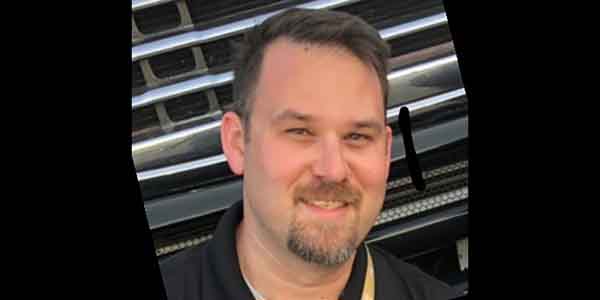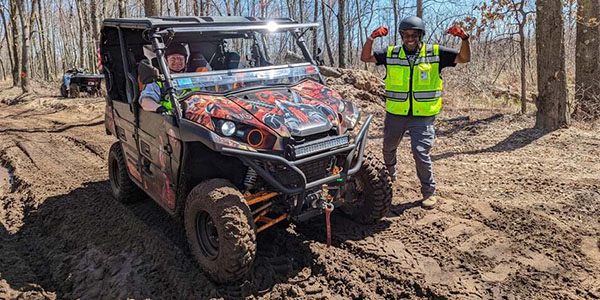Today, more than ever, dealers can’t seem to get up out of what my old friend Ed Lemco calls "The Swirl" — Ed always seemed to be using a toilet as his reference — I’ll leave it at that. Staying in a reactive mind-set seems to breed unusually high levels of panic, and I always sense the highest levels of desperation right before the sales season gets underway.
I recently received an e-mail from a longtime friend and client. My response to the e-mail and the ensuing coaching sessions we did proved instrumental in helping them make a real transition from a reactive to a proactive state. They were able to get the needed elevation to see what they really wanted to do and then were able to take new direction to make it happen.
Jack and Jill’s reactive to proactive transformation:
- They’ve been wandering down the road of reactivity by having job descriptions that just sit in a file.
- They stopped by refusing to move forward until they had a plan to fix the problem.
- They turned to look in another direction by analyzing what the cause of the problem is and creating an executable solution.
- Ultimately they were able to go in that new direction by training key employees based on job descriptions.
Jill’s e-mail: Do you think, if we had good managers in place, that Jack would have to be at the store from open to close every day? This is an ongoing argument between us, and I want your opinion. He’s ready to shut this whole thing down if he can’t change things.
My Response: I just finished reading a book called Cash Flow Quadrant by Robert Kyosaki that talks about four mind-sets or approaches to business.
Those quadrants are:
- Employee
- Self-Employed
- Business Owner
- Investor
My opinion concerning your question would depend on where Jack is now — where within those quadrants he wants to be, and what it would take to get there?
Start with the definitions: Employees work for others and draw a paycheck for the work they do. Self-employed workers are just like employees in every way other than the fact that they own their job. Business owners own systems and processes, and monitor and lead those who work in those systems. Investors just back businesses and have their hands completely off of the day-to-day. Right now, Jack is self-employed. From what you’ve described, it sounds like Jack wants to be a business owner, but can’t get there from here.
The key, in my opinion, isn’t so much that a business owner can and should be able to arrange his life to have those managers, as you suggested in your question, but that the person who gets things arranged like that is a business owner. It is almost as if the process of putting in systems and procedures renders a self-employed person a business owner. Does that make any sense?
Basically I believe that if Jack wants to be a business owner instead of being self-employed, he can. It’ll take a deadly accurate assessment of where he is now, (point A), a clearly defined sense of where he wants to be (point B) and an executable plan to get there. But he can’t do any of it if he continues to do the same things he’s doing now. He has to stop … period.
In this case, Jack and Jill had to stop reacting first. Re-read that, they had to STOP first. Not slow down, not turn around and not even start doing different things — they had to repent! Repentance has little to do with the religious connotations that may be attached to it. To repent is actually a really simple verb with a built-in action plan. It involves the sequential application of three verbs: stop, turn (in another direction) and go (in that direction). Repentance requires a sequential application of all three of these verbs, and no successful transition can be made if you mix up the steps.
One of my first pieces of advice was for Jack and Jill to take a vacation. It took some persuading but reason prevailed, and they took a trip to Tahiti — in mid-season! Once we got Jack out of the store for about a week, he was forced to stop reacting, regardless of what happened while he was gone. They began to think deliberately instead of prioritizing on the fly. If you look at the last sentence, you’ll see the words "proactive" and "reactive" both defined.
Next was the effort to turn. They had to start thinking about what they really wanted from the beginning. So they started to look at the business in little snapshots instead of in the video on fast-forward form they’d become used to. Because the pace slowed, they were able to make the slightest little change in their thinking which resulted in a huge difference in their focus.
The questions changed from the "what do I do now?" reactive questions to "what’s the right thing to do now?" proactive questions. What did he need from the people on his team? Could others make the decisions that Jack was always making? Could he teach someone to write a report in the same amount of time that it took him to write one? Those were all questions that helped him to form small action plans for making big changes.
Finally Jack and Jill faced the hardest part; they had to go in their new direction. Momentum, inertia, the flywheel effect, etc. are the most common reasons that new initiatives are so difficult to get going. Your plan doesn’t necessarily suck, and the team is just as good today as they were yesterday. The big reason it feels so hard to get going in the new direction is that yesterday had momentum going in the wrong direction, and today has no momentum because all you’ve done so far is to change direction.
They’d always assumed that the team knew what they were supposed to do, so they were puzzled that people weren’t doing their jobs; everyone seemed to expect Jack to do everything. They didn’t seem aware of their job descriptions. Jack and Jill had plenty of written job descriptions — just like many of you — so that couldn’t be the problem … could it?
The next phase of their journey was to realize that there’s a huge difference between having and doing. Having job descriptions doesn’t change anything. Training a team with a job description changes everything. So we helped them create an eight-week training schedule and agenda with targeted, sequenced, achievable objectives to help them train their management team using their job descriptions as the "training manual".
Within weeks, Jack and Jill were feeling a bit of relief in terms of a real reduction in Jack’s time spent in reactive mode. Within a few more weeks, the team found themselves far less reactive and less stressed because they didn’t have to wait for Jack, and I’m happy to report that after about six months Jill found herself pregnant. I personally needed no more proof that Jack was getting home earlier.














